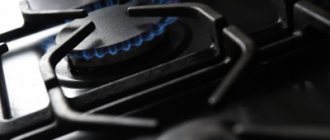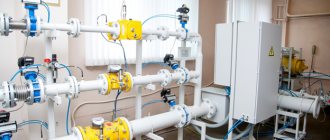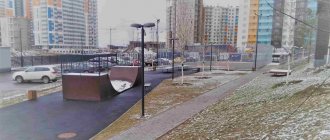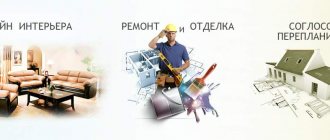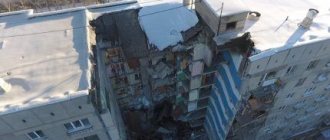Maintenance of gas equipment
| Name | Price, rub./(piece/set/m.p.) |
| Maintenance of gas equipment in MKD | |
| Annual maintenance (gas stove, hob, oven) in MKD | 975,62 |
| Annual maintenance of instantaneous, capacitive (storage) gas water heater in MKD | 1843,37 |
| Annual maintenance (gas stove, hob, oven) and instantaneous, capacitive (storage) gas water heater in an apartment building | 2678,04 |
| Annual maintenance of gas equipment with a wall-mounted boiler up to 30 kW, a water heater and a gas stove (hob/oven) | 4907,57 |
| Service package for the VKGO maintenance agreement in the MKD: round-the-clock emergency dispatch support (ADS), on-site repair of gas equipment with an unlimited quantity, priority in the order of requests, discount on spare parts, disconnection/connection of the gas stove. | 2892,43 |
| Call a technician to repair the stove and/or water heater if there is a contract | 1000 |
| Calling a technician to repair a stove/water heater/boiler (one-time application) without a service package for the VKGO maintenance agreement in the MKD | 3000 |
Maintenance of gas equipment in private households
| Name | Price, rub./(piece/set/m.p.) |
| Annual maintenance of a gas boiler with a power of 30 to 60 kW, including one emergency request | 12500 |
| Annual maintenance of a gas boiler with a power from 60 kW to 100 kW, including one emergency request | 17500 |
| Annual maintenance of a gas boiler with a power from 100 kW to 150 kW, including one emergency request | 22500 |
| Call a specialist to carry out repairs (one-time application) of a gas boiler with a power of up to 60 kW / up to 100 kW / up to 150 kW | 5000 |
| Repeated visit of the technician to install the spare part | 3000 |
| Call a technician to perform maintenance on a gas boiler with a power of up to 60 kW / up to 100 kW / up to 150 kW | 9000/12500/17500 |
In an apartment building:
"Indoor gas equipment»
- gas pipelines, which are the common property of the owners of the premises, laid from the gas source (when using liquefied petroleum gas) or the point of connection of these gas pipelines to the gas distribution network up to and including the shut-off valves (taps), located on branches (drops) to the intra-apartment gas equipment, tanks and (or ) group cylinder installations of liquefied hydrocarbon gases intended for supplying gas to one apartment building, gas-using equipment (with the exception of household gas-using equipment included in indoor gas equipment), technical devices on gas pipelines, including control and safety valves, gas control systems premises, collective (common house) gas meters, as well as gas meters that record the volume of gas used in the production of utility services for heating and (or) hot water supply;
"Indoor gas equipment»
- gas pipelines of an apartment building, laid after the shut-off valves (taps) located on branches (drops) to the apartment gas equipment, to household gas-using equipment located indoors, household gas-using equipment and technical devices on gas pipelines, including control and safety valves, indoor gas monitoring systems, individual or general (apartment) gas metering device.
In households:
"indoor gas equipment
» - located within the land plot on which the household is located, gas pipelines laid from the gas source (when using liquefied hydrocarbon gases) or the point of connection of these gas pipelines to the gas distribution network to household gas-using equipment, tank and (or) group cylinder installations of liquefied hydrocarbon gases , intended for supplying gas to one household, individual cylinder installations of liquefied hydrocarbon gases, household gas-using equipment, technical devices on gas pipelines, including shut-off control and safety valves, indoor gas monitoring systems and gas metering devices;
“Maintenance of VDGO and (or) VKGO”
- work and services to maintain in-house and (or) in-apartment gas equipment in a technical condition that meets the regulatory requirements for it.
“Technical diagnostics of VDGO and (or) VKGO”
— determination of the technical condition of in-house and (or) in-house gas equipment or their components, search and determination of faults of the specified equipment, as well as determination of the possibility of its further use.
Safe use and maintenance of VDGO and (or) VKGO
are provided through the implementation of the following set of works (services):
a) maintenance and repair of VDGO and (or) VKGO;
b) emergency dispatch support;
c) technical diagnostics of VDGO and (or) VKGO;
d) replacement of equipment.
Work on the maintenance
and repair of VDGO and (or) VKGO
is carried out by a specialized organization in the manner prescribed by Rules No. 410, on the basis of an agreement on the maintenance and repair of VDGO and (or) VKGO, concluded between the customer and the contractor. Under the contract for the maintenance and repair of VDGO and (or) VKGO, the customer and the contractor cannot be the same person.
The frequency of maintenance of VDGO and (or) VKGO is at least once a year
taking into account the minimum list of work performed (services provided) for the maintenance and repair of in-house and (or) in-apartment gas equipment, provided for in the appendix to Rules No. 410.
Repair of
VDGO and (or) VKGO
is carried out by a specialized organization in order to promptly eliminate faults identified during its maintenance or by gas consumers independently during its operation.
Repair work
are carried out by a specialized organization on the basis of a repair request after its execution and registration, but
no later than one day.
Emergency dispatch support
carried out by the gas distribution organization in accordance with the legislation of the Russian Federation and Rules No. 410. Gas leaks and other malfunctions that may lead to an accident or pose a threat to the safety of citizens must be corrected immediately, in an emergency manner.
Work on
technical diagnostics of VDGO and (or) VKGO
is carried out in relation to equipment that has expired the service life established by the manufacturer, or the terms established by the design documentation approved for gas pipelines on the basis of a paid agreement on technical diagnostics of the specified equipment, concluded with an organization that meets the requirements, established by Section IX of Rules No. 410.
Technical diagnostics of VDGO and (or) VKGO
should be carried out
once every five years
, unless otherwise established by the manufacturer of gas equipment or design documentation approved for gas pipelines.
Equipment replacement
, which is part of the VDGO and (or) VKGO, is carried out in the following cases:
- expiration of the service life of
the equipment established by the manufacturer or the terms established by the design documentation approved for gas pipelines, if these terms are not extended based on the results of technical diagnostics of the VDGO and (or) VKGO, as well as the expiration of the service life of this equipment extended based on the results of its technical diagnostics; - recognition of gas-using equipment as beyond repair (unsuitable for repair)
during maintenance or based on the results of technical diagnostics of VDGO and (or) VKGO; - customer's request
.
Replacement of equipment
included in the VDGO and (or) VKGO
is carried out by a specialized organization as part of the execution of an agreement on the maintenance and repair of VDGO and (or) VKGO. Independent replacement of the specified equipment by its owner without the involvement of a specialized organization is not allowed.
Proper maintenance of smoke and ventilation ducts
residential premises and apartment buildings - is a prerequisite for the safe use of VDGO and (or) VKGO. In this case, checking the condition of smoke and ventilation ducts and, if necessary, cleaning them is carried out by concluding an agreement on their inspection, as well as, if necessary, on cleaning and (or) repairs with the organization carrying out the specified work:
a) when accepting smoke and ventilation ducts into operation during gasification of a building and (or) connecting new gas-using equipment;
b) during the reconstruction and repair of smoke and ventilation ducts;
c) during the operation of smoke and ventilation ducts (periodic checks) - at least 3 times a year (no later than 7 calendar days before the start of the heating season, in the middle of the heating season and no later than 7 days after the end of the heating season);
d) in the absence of draft detected during operation, during maintenance and repair of in-house and (or) in-apartment gas equipment, diagnosing in-house and (or) in-apartment gas equipment and emergency dispatch support.
Payment for work
for maintenance, replacement (repair) of equipment included in the VDGO and (or) VKGO, is carried out by the owner of this equipment.
Maintenance of gas equipment during the heating season: 7 important issues
What a gas consumer should know in order to get through the heating season without accidents or tragedies.
With the onset of cold weather, the number of emergency requests to the dispatcher console of service “04” increases sharply. The reasons are the same: gas equipment could not cope with the increased load or subscribers grossly violated the rules for using gas in everyday life. Experts answered questions about the safe use of gas stoves, water heaters and boilers during the cold season.
What most often leads to emergency situations?
Most often, emergency situations are caused by owners' failure to comply with basic gas safety rules: the stove is left on unattended or the stove is used to heat the room, clothes drying lines are hung from gas pipes, the ventilation is closed, there is no maintenance contract or no maintenance has been carried out for two or more years. etc.
Why carry out maintenance? What gives? What will gas workers do during the inspection?
During the cold season, gas equipment operates at maximum load. Therefore, at the beginning of the heating season, it is extremely important to check the performance of gas water heaters and boilers.
If you still don’t have a gas equipment maintenance contract, sign one. Gas workers will monitor your equipment so that it is in order and does not pose a threat to your life, as well as the life and property of others.
During maintenance, the gas worker must:
- inspection of indoor gas equipment to check integrity and compliance with regulatory requirements;
- visual check of the availability of free access (inspection) to indoor gas equipment;
- inspection of the gas pipeline for the condition of painting and fastenings;
- checking the tightness of connections and disconnecting devices;
- dismantling and lubrication of taps of household gas-using equipment;
- checking the functionality of devices that allow you to automatically turn off the gas supply, its adjustment and adjustment;
- regulation of the gas combustion process;
- checking the gas pressure in front of gas-using equipment with all burners running and after stopping the gas supply;
- checking the presence of draft in the smoke and ventilation ducts, the condition of the connecting pipes with the smoke duct;
- instructing gas consumers on the safe use of gas.
What are the consequences of refusing to conclude a contract and ignoring the inspection?
Refusal to conclude an agreement, as well as denial of access to gas workers to carry out work, may cause a suspension of gas supply. In addition, there are also administrative penalties.
What can they be fined for?
: for evading the conclusion of a maintenance agreement, for refusing to allow a representative of the gas service to carry out maintenance, for evading mandatory replacement or mandatory diagnostics of gas equipment.
What is the fine?
: for citizens - from 1 to 2 thousand rubles. If the listed actions led to an accident or a threat to the life and health of people, the fine will be: for citizens - 10-30 thousand rubles.
Why do they turn off the gas during the inspection?
In a number of apartment buildings, gas workers carry out maintenance of gas equipment, checking the tightness of gas pipelines and temporarily stopping gas in apartment buildings. The goal is to check the tightness of gas pipes, identify possible gas leaks and eliminate them.
It often happens that during control pressure testing (that is, checking the air pressure of the gas pipeline at the entrance), the device shows that the pressure is dropping, which means the gas pipeline is leaky - there is a gas leak somewhere.
In an apartment building, people living in the same building in the entrance are directly dependent on each other. Therefore, it is important that during maintenance all residents are at home, and gas is supplied as soon as possible after interruption.
To identify the causes of leaks, gas workers need to get into all apartments and check gas equipment. After all, gas can only be supplied into a sealed gas pipeline!
Can residents check gas equipment themselves?
No, inspection of gas equipment in the apartment is carried out by specialists of Tulagorgaz JSC annually under an agreement with the owner.
BUT!
Responsibility for proper functioning of gas equipment lies with the owner. Even if you are 100% sure that everything is fine with your gas equipment, maintenance is still necessary.
Residents need to monitor their service life and strictly follow gas safety rules:
1. before turning on gas appliances, check the draft;
2. do not cover the ventilation duct grille;
3. open a window or transom when using gas appliances;
4. do not use a gas water heater, forced ventilation and an exhaust hood at the same time;
5. leave operating gas appliances unattended.
What should I do if no one is home on the day of the maintenance?
For the convenience of residents, Tulagorgaz JSC has a flexible work schedule; maintenance of gas appliances is carried out on weekdays in the evening, as well as on Saturdays.
If residents cannot be present at home on the day of the maintenance, they can call Tulagorgaz in advance and call a technician at a convenient time by phone: 25-36-68, 25-36-56, 25-36-37 or leave a request on the website .
JSC Tulagorgaz strictly observes all coronavirus prevention measures recommended by Rospotrebnadzor. Before starting their professional duties, employees undergo body temperature checks every morning. They are provided with masks and antiseptics.
Can I get a discount on the day of the inspection?
A discount of 10% from the price indicated in the receipt can be received by those subscribers who provide access to the apartment of a gas service specialist directly on the day of scheduled maintenance of the gas equipment of an apartment building.
A 10% discount applies to the following types of work:
- maintenance of 2-4 burner gas stoves in apartments;
- maintenance of instantaneous water heater in apartments;
- maintenance of a wall-mounted gas double-circuit boiler with a power of 24 kW or more. up to 35 kW;
- maintenance of an imported gas boiler.
Serviceable gas equipment is the key to safety. Take care not only of your wallet, but also of your life and that of your neighbors!
Legal grounds for suspending gas supply:
- lack of draft in chimneys and ventilation ducts;
- lack of air flow in the amount necessary for complete combustion of gas when using gas-using equipment;
- malfunction or interference in the operation of devices provided by the manufacturer in the design of gas-using equipment that allow the gas supply to be automatically turned off when the controlled parameters deviate beyond acceptable limits (if such interference resulted in a malfunction of the specified devices) if it is impossible to immediately eliminate such a malfunction;
- use of intra-house and (or) intra-apartment gas equipment in the presence of a gas leak that cannot be eliminated during maintenance;
- use of faulty, dismantled and beyond repair in-house or in-apartment gas equipment;
- unauthorized connection of intra-house and (or) intra-apartment gas equipment to the gas distribution network;
- taking actions to install gas pipelines of gas consumption networks and their technological connection to a gas pipeline of a gas distribution network or other source of gas, as well as to connect gas-using equipment to a gas pipeline or a tank, group or individual cylinder installation of liquefied hydrocarbon gases without complying with the requirements established by the legislation of the Russian Federation (unauthorized gasification );
- failure to comply within the established time frame with written orders issued by housing supervision (control) authorities to eliminate violations of the maintenance of intra-house or intra-apartment gas equipment;
- reconstruction of intra-house and (or) intra-apartment gas equipment carried out in violation of the legislation of the Russian Federation, leading to disruption of the safe operation of this equipment, smoke and ventilation ducts of an apartment building or household;
- refusal by the customer 2 or more times to allow a specialized organization to carry out maintenance work on in-house and (or) in-apartment gas equipment (subject to compliance with the provisions provided for in paragraphs 48 - 53 of these Rules);
- lack of an agreement on the maintenance and repair of in-house and (or) in-apartment gas equipment;
- expiration of the in-house and (or) in-apartment gas equipment (separate equipment included in the in-house and (or) in-apartment gas equipment) standard service life established by the manufacturer, and the absence of a positive conclusion based on the results of technical diagnostics of the specified equipment, and in the event of an extension of this period Based on the diagnostic results, the extended service life of the specified equipment has expired.
Mandatory rules for using gas appliances:
- Ventilate the premises when using gas stoves.
- It is not allowed to load gas pipelines or use them as supports.
- Do not use gas stoves to heat apartments, this can lead to carbon monoxide poisoning.
- Do not leave operating gas appliances unattended, do not allow young children and persons who do not control their actions and do not know the rules for using these appliances.
- It is not allowed to independently repair, replace, rearrange gas appliances, or turn on gas appliances that were turned off by gas workers.
- When leaving on vacation, turn off the gas supply to the apartment by turning the tap on the gas supply pipe. The tap on the common gas pipeline at the entrance to the apartment is larger in diameter - not 15, but 25 millimeters.
- During finishing work, it is impossible to bury a gas pipeline with a shut-off device tightly into the wall, blocking access for inspection and maintenance of the gas pipeline.
- It is prohibited to make changes to the design of gas appliances, change the design of smoke and ventilation systems, seal ventilation ducts, brick up or seal “pockets” and hatches intended for cleaning chimneys.
Timely maintenance of gas equipment by organizations authorized to carry out such work is a guarantee of the safe use of natural gas in everyday life!
REMEMBER! If the smell of gas appears in the apartment, immediately stop using gas appliances, turn off the taps to and on the appliances, open windows or vents to ventilate the room, call the gas emergency service by phone or 04 (outside the gas-polluted premises).
Do not light a fire, do not smoke, do not turn on or off electric lights and electrical appliances, and do not use electric bells.
Our contacts : 143006, Moscow region, Odintsovo, st. Transportnaya, 2 B. Phone Email
Services:
- Maintenance of gas equipment.
- Repair of gas equipment at the request of subscribers.
- Servicing of gas equipment during the warranty and post-warranty periods.
- Replacement of gas equipment with expired service life
- Shutdown or dismantling of gas equipment (during repairs or as necessary).
- Reconstruction, installation of new or additional gas equipment with or without welding (with press fittings and copper pipes).
- Installation of a flexible hose.
- Initial installation or replacement of gas meters with or without welding (including press fittings and copper pipes).
One-time repair of gas equipment
In addition to subscriber servicing of devices, the terms of which are specified in the contract for the provision of services to the subscriber, he will carry out one-time repairs of gas equipment. Qualified engineers will identify and eliminate gas or working fluid leaks in the heating circuit, and repair the boiler in case of complex and simple breakdowns. All work is covered by a guarantee.
Engineers will perform a comprehensive check of gas equipment installed at the site and will help the subscriber understand the intricacies of setting up and operating the equipment. The cost of one-time work depends on the range and complexity of the services provided. A specialist’s visit is carried out upon a call from the customer or upon receipt of an application on the organization’s website.
